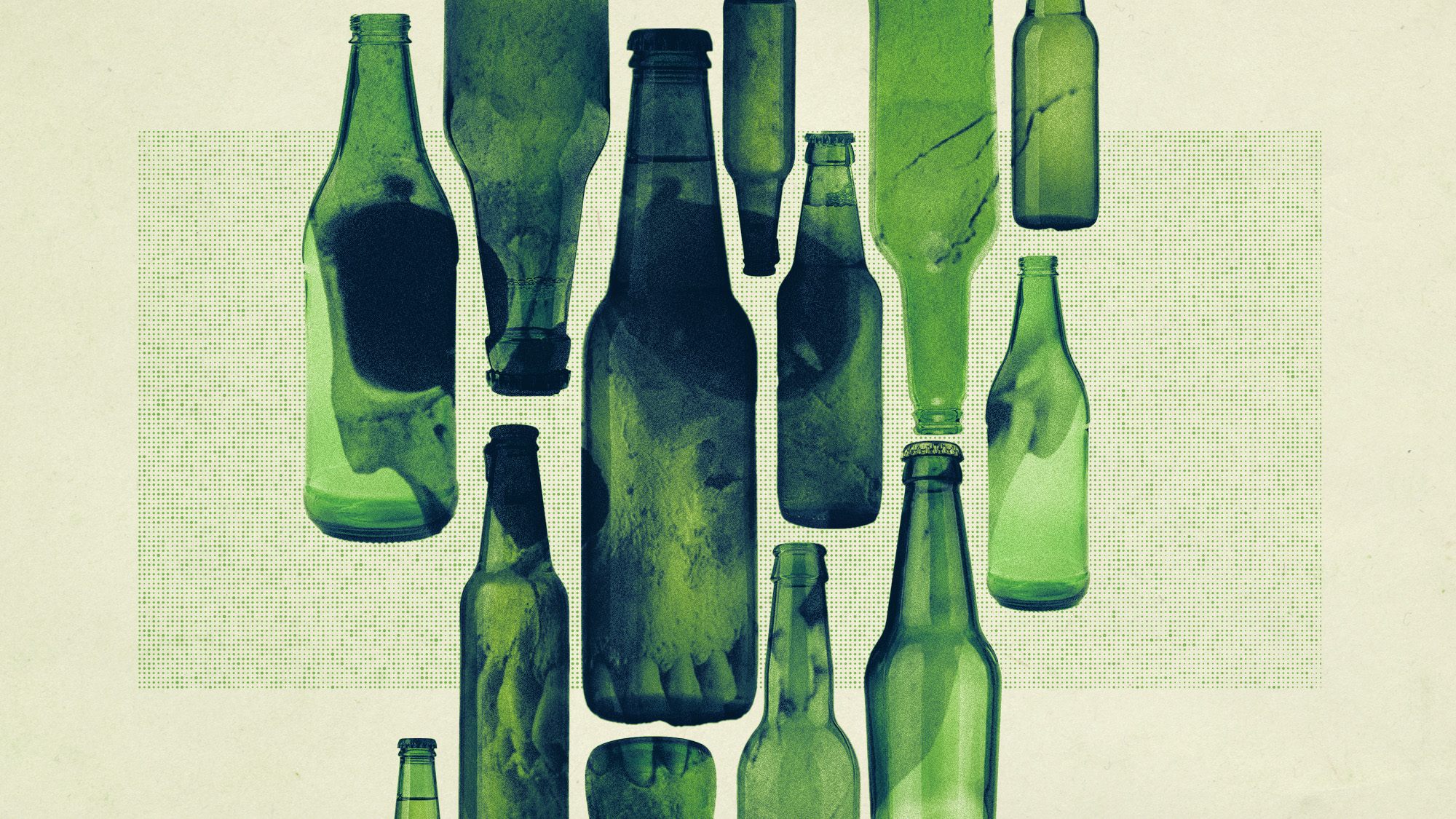India's toxic alcohol problem
Bootleggers add lethal methanol to illegal liquor to cheaply increase potency, leading to widespread casualties

A free daily email with the biggest news stories of the day – and the best features from TheWeek.com
You are now subscribed
Your newsletter sign-up was successful
At least 54 people have died in India's southern state of Tamil Nadu after drinking illegal alcohol laced with toxic methanol.
Nearly 200 people have been treated since last Wednesday and "dozens are still hospitalised" with symptoms including vomiting and diarrhoea, said Al Jazeera.
Selling and consuming alcohol is banned in several parts of India, which leaves space for a black market of bootlegged liquor, but "few can afford branded spirits".
The Week
Escape your echo chamber. Get the facts behind the news, plus analysis from multiple perspectives.

Sign up for The Week's Free Newsletters
From our morning news briefing to a weekly Good News Newsletter, get the best of The Week delivered directly to your inbox.
From our morning news briefing to a weekly Good News Newsletter, get the best of The Week delivered directly to your inbox.
More than a dozen people died last year in a similar incident in a nearby district. Other Indian states, including Assam, Punjab and Bihar, have also reported "hundreds of deaths from bootleg alcohol", said Chennai-based journalist Anupama Chandrasekaran for NPR.
'The worst in years'
"Hundreds of people die in India every year from cheap alcohol, which is made in illicit backstreet distilleries," said Metro. Vendors often add the toxic chemical to bootlegged liquor to increase its potency, but even a small amount can lead to blindness, liver damage and even death.
Despite "public demands for a crackdown on illegal vendors" the deaths continue. But this "unthinkable tragedy" in the village of Karunapuram, in the Kallakurichi district, is "the worst in years".
The tainted liquor was locally brewed and laced with methanol and then wrongly put on sale last Tuesday, according to Tamil Nadu state chief minister M.K. Stalin. "Within hours" of drinking the alcohol, 37 people were dead. Some "collapsed in the street and died almost immediately".
A free daily email with the biggest news stories of the day – and the best features from TheWeek.com
Authorities have seized 200 litres of the illegal alcohol, and at least seven people have been arrested so far. Several police officers have also been suspended, according to local media reports.
"It is a complicated socio-economic problem," said Kallakurichi's new top official M.S. Prasanth. "There is a demand due to poverty and some of these people are choosing lower-priced drinks. We have to cut down the supply and do some long-term interventions in the area."
Prasanth has brought in specialist doctors from neighbouring districts and the antidote for methanol poisoning. "Despite these efforts," said Chandrasekaran, "a quarter of the hospitalised patients didn't survive."
'The men work just to drink'
Poor labourers in the district regularly buy black-market liquor in plastic bags for 60 rupees (57p) and drink it before work, a local councillor told The Indian Express. "Men staggering home drunk is not an unusual sight in the village of Karunapuram".
"The men work just to drink, and the women run the family," said rickshaw driver Shankar, who lives on a street where 23 people died.
On Wednesday, Ponnusamy Rajendran, a 55-year-old labourer, bought "three 50-cent plastic pouches of bootleg alcohol to feed his addiction", said NPR. Rajendran died in a government hospital on Thursday. "He had a limited budget with his wages and after sharing half his earnings with his family, he calculated and found it profitable to buy fake alcohol," said his son-in-law Kaliappan Gnanavel.
But despite evidence of a "mass poisoning", a district official (who has since been transferred) initially denied that the deaths were due to illegal alcohol. It was "shocking", a local councillor told The Indian Express. "I seemed there was pressure to downplay the incident."
Rajendran's daughter said the family "have battled with the bootleggers to halt the sale of this substance", only to be told: "Why do you allow him to come and purchase from us?"
"This is a major crisis and it must never occur again," she said.
Harriet Marsden is a senior staff writer and podcast panellist for The Week, covering world news and writing the weekly Global Digest newsletter. Before joining the site in 2023, she was a freelance journalist for seven years, working for The Guardian, The Times and The Independent among others, and regularly appearing on radio shows. In 2021, she was awarded the “journalist-at-large” fellowship by the Local Trust charity, and spent a year travelling independently to some of England’s most deprived areas to write about community activism. She has a master’s in international journalism from City University, and has also worked in Bolivia, Colombia and Spain.
-
 How to Get to Heaven from Belfast: a ‘highly entertaining ride’
How to Get to Heaven from Belfast: a ‘highly entertaining ride’The Week Recommends Mystery-comedy from the creator of Derry Girls should be ‘your new binge-watch’
-
 The 8 best TV shows of the 1960s
The 8 best TV shows of the 1960sThe standout shows of this decade take viewers from outer space to the Wild West
-
 Microdramas are booming
Microdramas are boomingUnder the radar Scroll to watch a whole movie
-
 Scientists are worried about amoebas
Scientists are worried about amoebasUnder the radar Small and very mighty
-
 Metal-based compounds may be the future of antibiotics
Metal-based compounds may be the future of antibioticsUnder the radar Robots can help develop them
-
 Europe’s apples are peppered with toxic pesticides
Europe’s apples are peppered with toxic pesticidesUnder the Radar Campaign groups say existing EU regulations don’t account for risk of ‘cocktail effect’
-
 A Nipah virus outbreak in India has brought back Covid-era surveillance
A Nipah virus outbreak in India has brought back Covid-era surveillanceUnder the radar The disease can spread through animals and humans
-
 How space travel changes your brain
How space travel changes your brainUnder the Radar Space shifts the position of the brain in the skull, causing orientation problems that could complicate plans to live on the Moon or Mars
-
 Deaths of children under 5 have gone up for the first time this century
Deaths of children under 5 have gone up for the first time this centuryUnder the radar Poor funding is the culprit
-
 A fentanyl vaccine may be on the horizon
A fentanyl vaccine may be on the horizonUnder the radar Taking a serious jab at the opioid epidemic
-
 Stopping GLP-1s raises complicated questions for pregnancy
Stopping GLP-1s raises complicated questions for pregnancyThe Explainer Stopping the medication could be risky during pregnancy, but there is more to the story to be uncovered